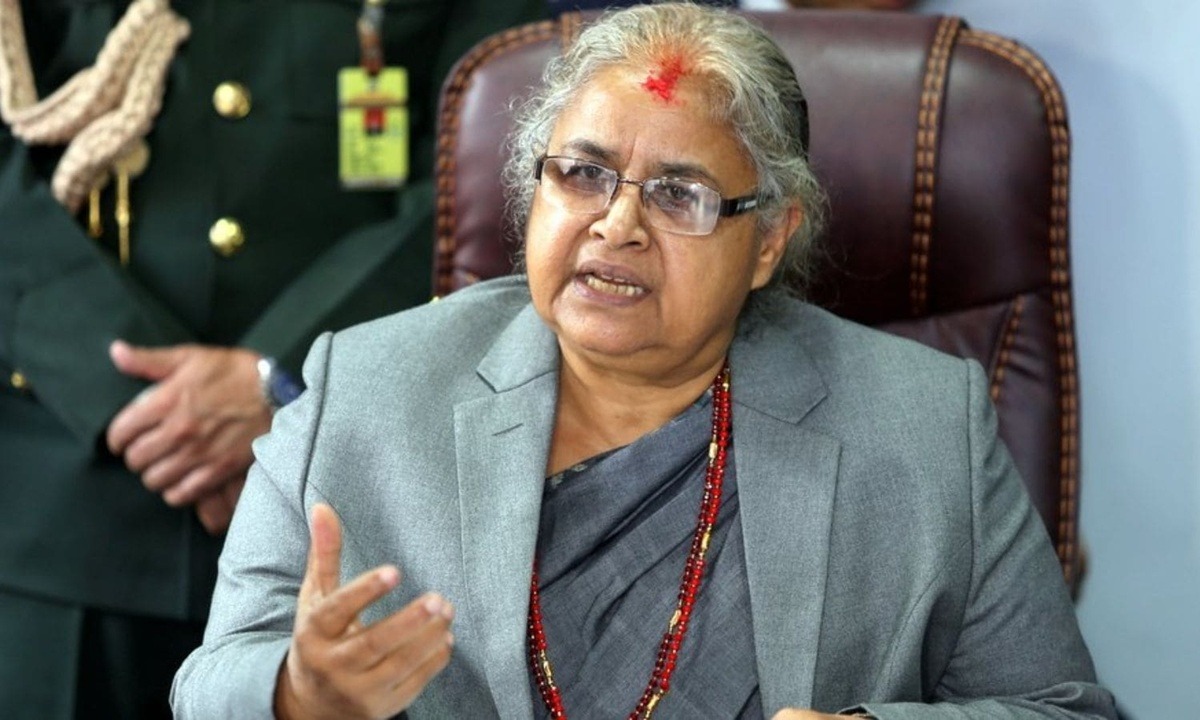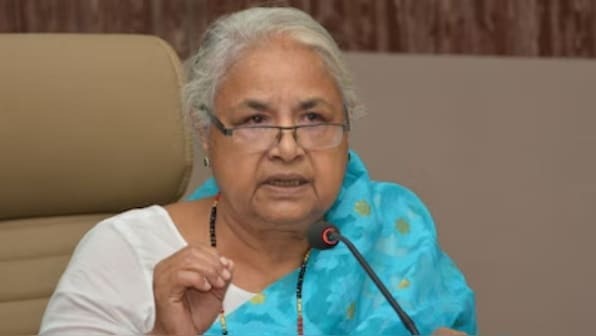On 10/9, General Ashok Raj Sigdel, commander of the Nepalese army, met with key officials and representatives of "Gen Z," the term used to describe the leaderless youth protest movement.
"Sushila Karki is the proposed candidate to lead the interim government, and we await the president's decision," activist Rakshya Bam, a participant in the meeting, said on 11/9.
Nepal has been in turmoil since 8/9, when tens of thousands of people, mostly born between 1997 and 2012, protested against social media restrictions and demanded the government's dissolution due to economic and political grievances. The situation escalated into violence after police opened fire, resulting in 20 deaths and widespread chaos.
The resignation of Prime Minister Sharma Oli and several cabinet members exacerbated the crisis, leading to a power vacuum and increased violence and arson. The army was deployed nationwide and imposed a curfew to restore order.
Karki, 73, is favored by the protesters to serve as interim prime minister due to her perceived neutrality and non-affiliation with any political party. Her firm anti-corruption stance has fueled hopes that she can resolve the crisis.
"My concern is law and order in Nepal. To maintain stability, the country needs someone with legal expertise, and Karki is the right choice," a student protester told ANI.
 |
Former Chief Justice of Nepal Sushila Karki, nominated by protesters as interim prime minister. Photo: X/@airnewsalerts |
Former Chief Justice of Nepal Sushila Karki, nominated by protesters as interim prime minister. Photo: X/@airnewsalerts
Born in June 1952 in Biratnagar, Nepal's fourth-largest city and industrial hub, Karki graduated from university in 1972. She earned a master's degree in political science from Banaras Hindu University in 1975 and a law degree from Tribhuvan University in 1978.
As a student, Karki was associated with the Nepali Congress party, which was then fighting to overthrow the monarchy. She met Durga Subedi, a prominent youth leader of the Nepali Congress, while studying at Banaras Hindu University and later married him.
Karki began her legal career in March 1979, lectured at Mahendra Multiple Campus in Dharan in 1985, and became a senior advocate in 2007. In January 2009, she was appointed as an ad-hoc judge in the Supreme Court of Nepal, becoming a permanent judge in November 2010.
In July 2016, Karki became the first female Chief Justice of Nepal, serving until June 2017. Known for her integrity and independence, she issued strong rulings against corruption and nepotism, including curbing the powers of anti-corruption chief Lokman Singh Karki and imprisoning former information and communications minister Jaya Prakash Prasad Gupta.
Karki was part of the bench that upheld the verdict against former police chief Om Bhakta Rana in a corruption scandal involving Nepal's peacekeeping mission in Sudan. She also issued rulings on the property rights of members of the Nepalese royal family.
Her judicial tenure was marked by an impeachment motion. In April 2017, ruling party lawmakers accused her of interfering with the executive branch after the Supreme Court overturned the government's appointment of a national police chief, citing bias. Karki was suspended after nearly half of Nepal's parliamentarians signed the motion.
Deputy Prime Minister and Home Minister Bimalendra Nidhi resigned in protest. The impeachment motion was eventually dropped due to lack of a two-thirds majority, strong public opposition, and a Supreme Court ruling blocking parliament's action.
Karki has authored a book on gender equality and is a member of several human rights and feminist organizations. She also maintains good relations with Indian leaders, including Prime Minister Narendra Modi.
Lawyer Hari Phuyal, a former student of Karki, described her in 2016 as someone with a strong belief that "capable women must hold leadership positions to contribute to the liberation of women in general."
 |
Sushila Karki is expected to help Nepal overcome its current crisis. Photo: CNN News 18 |
Sushila Karki is expected to help Nepal overcome its current crisis. Photo: CNN News 18
Informed sources suggest that Karki's reputation and neutrality make her a more trusted figure among young protesters than other potential candidates, such as Kathmandu Mayor Balendra Shah or former Nepal Electricity Authority chief Kul Man Ghising. Shah endorsed Karki for the interim prime ministership late on 10/9.
Analysts believe that the Gen Z movement's choice of Karki reflects a deep distrust of established politicians and a desire for reform led by a neutral figure.
Karki has confirmed her acceptance of the interim prime ministership, pending approval from President Ram Chandra Paudel.
"The situation is incredibly difficult. We will work together for the development of Nepal. We will try to create a new beginning for the country," Karki said.
Nhu Tam (Firstpost, India Express, Mint)












